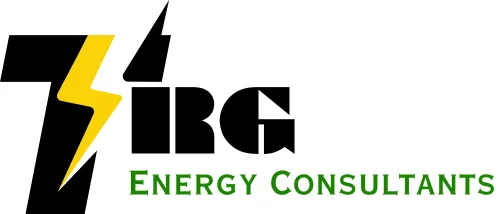Electricity Procurement
Electricity Procurement
Electricity Procurement Services
Electricity procurement services refer to the process of sourcing and acquiring electricity supply for businesses or organizations. These services are typically offered by specialized energy consulting firms or third-party intermediaries known as electricity brokers.
The primary goal of electricity procurement services is to help businesses obtain electricity at competitive prices and favorable contract terms. The process involves assessing a company's energy needs, analyzing market conditions, and identifying opportunities to secure cost-effective electricity supply agreements.
Overview of TRG Energy Electricity Procurement Strategy
Effective electricity procurement for businesses involves addressing three fundamental inquiries: the methodology of purchasing electricity, determining the most suitable supplier, and deciding the optimal timing for procurement. By understanding and answering these questions, businesses can develop strategies to optimize their electricity procurement process.
Methodology of Purchasing Electricity
The first question businesses need to address is how to purchase electricity. There are various methods available, and the choice depends on factors such as the business's energy consumption patterns, risk tolerance, and budget. Here are some common methodologies:
a. Fixed-Rate Contracts: This involves signing a long-term agreement with an electricity supplier at a fixed price. It provides price stability over the contract term, allowing businesses to budget more accurately. However, it may not take advantage of price fluctuations in the market.
b. Index-Based Contracts: With this approach, the electricity price is tied to an index, such as the wholesale market price. The price can fluctuate based on market conditions, offering potential savings during periods of low prices but also exposing businesses to market volatility.
c. Renewable Energy Contracts: Some businesses may choose to procure electricity from renewable sources, such as wind or solar power. Power purchase agreements (PPAs) are often used, where businesses commit to purchasing a certain amount of renewable energy from a specific project or supplier.
There are a variety of ways to buy electricity:
Determining the Suitable Supplier
Selecting the right electricity supplier is crucial for businesses to ensure reliable and cost-effective electricity procurement. Consider the following factors when evaluating potential suppliers:
a. Cost Competitiveness: Compare prices and contract terms from different suppliers to find the most competitive rates. It's important to consider not only the electricity unit price but also any additional fees, such as transmission or distribution charges.
b. Reliability and Service Quality: Assess the supplier's track record in terms of service reliability, outage response times, and customer satisfaction. Look for reviews and ratings from other customers to gauge their performance.
c. Sustainability and Environmental Impact: If sustainability is a priority for your business, evaluate suppliers based on their commitment to renewable energy sources and environmental practices.
d. Contract Flexibility: Consider the flexibility offered by suppliers regarding contract terms, such as contract length and early termination options. This can be important if your business's electricity needs may change in the future.
Optimal Timing for Electricity Procurement
Timing plays a significant role in electricity procurement, as prices can fluctuate based on factors like demand, supply, and market conditions. Consider the following strategies to determine the optimal timing:
a. Market Monitoring: Stay informed about electricity market trends and monitor price fluctuations. This can help identify periods of lower prices and enable businesses to time their procurement accordingly.
b. Forward Contracting: For businesses with a fixed budget, forward contracting involves securing a contract with a supplier at a predetermined price for a future period. This strategy can mitigate the risk of price fluctuations but may limit potential savings if prices decline.
c. Demand Response Programs: Participating in demand response programs allows businesses to adjust their electricity consumption during periods of peak demand. In return, they may receive incentives or lower rates from suppliers. This approach can help optimize electricity costs.
d. Energy Procurement Advisors: Engaging with energy procurement advisors or consultants can provide expertise in navigating the electricity market. They can assist in analyzing market trends, negotiating contracts, and identifying cost-saving opportunities.
By addressing these three fundamental inquiries, businesses can develop a comprehensive approach to electricity procurement, optimizing costs, reliability, and sustainability based on their specific needs and objectives.
